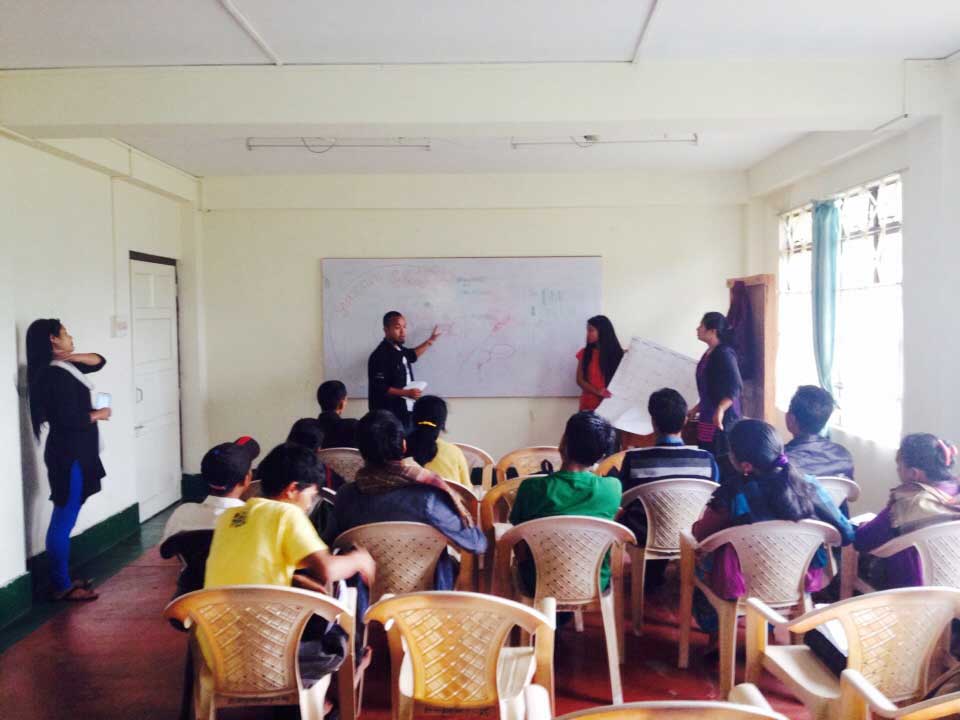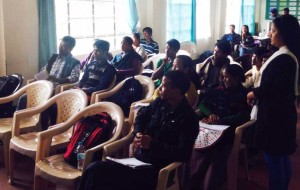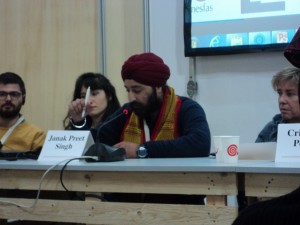
Photo: NESFAS
“School Garden are places where children learn about farming and the food they eat and form a bond with the land,” said Mr. Shaiphar Dohlieng, principal of the local school and headman of Dewlieh, East Khasi Hills.
NESFAS has been working with its communities in building these places for learning for the school children there. With the Indigenous Terra Madre 2015 just around the corner, and 10 villages hosting the International and National delegates, the 10 villages are also working on sprucing up their school gardens in preperation.

Photo: NESFAS
An orientation programme was organized for Teachers of Schools from the visiting villages of Indigenous terra Madre 2015 on 11th September 2015 at Bethany Society hall. Agendas discussed included School Gardens, Seasonal Calendars and Agrobiodiversity Walks in these villages. They group took up issues School Gardens face and intend to join hands to solve these together. The group will work on improving the existing school gardens in each of the villages and facilitate Biodiversity Walks with Local Knowledge holders and students and youth in an attempt to foster intergenerational knowledge transfer.
Seasonal calendars were also planned which would depict explanation of what the vegetables are and their availability in different seasons. This will take complete involvement of the school children of these villages and the teachers. Infact the teachers present at the programme have decided to take full responsibility of these activities and engage not just with the students of their respective schools but also with interested community members.
The ten villages include Pyrda, Diewlieh, Nongtraw, Laitsopliah, Nongwah and Mawhiang from the East Khasi Hills District; Khweng from the Ri-Bhoi District; Moosakhia and Mulieh from West Jaintia Hills; and Dombah from West Khasi Hills. These villages will be visited on the 4th day of ITM 2015 – 6th November 2015.

